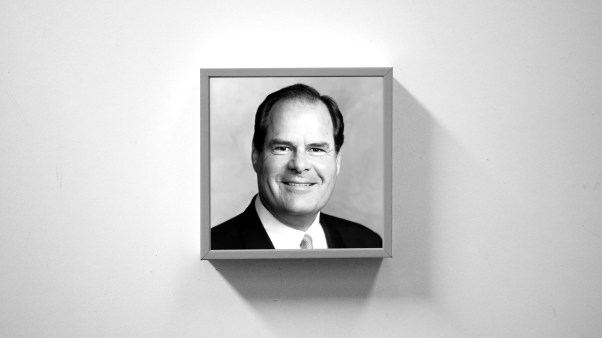For many of us, the idea of desire often has a negative connotation, immediately bringing to mind that pull we feel to do things we shouldn't. But Jen Pollock Michel's new book Teach Us to Want (InterVarsity Press) frames desire in a positive light—as a vital component to spiritual growth and transformation. We spoke with Jen about how viewing our "wants" through the lens of faith can ultimately draw us closer to God.
How can we differentiate between the luring draw of temptation and what you refer to in your book as "holy desire"?
One passage that's really important in understanding the difference is the Tower of Babel (see Genesis 11:1–9). It's a picture of unholy, selfish desire: The people rejected God's good, and they made their own plans for good. So one key to recognizing unhealthy, unholy desire is when I start to construct my own version of good—when I decide that my life will be good and it will have to be this certain way.
The Lord's Prayer, in contrast, leads us into this other vision of good where the good that God has for the world is about his name being hallowed, his kingdom coming, and his will being done.
And then the people said, "Come, let's make a name for ourselves," which is another key idea. Unholy desire is essentially self-promoting, self-protecting, and self-preserving. This story is really important because it gives me a picture of what's going on when I want to make a name for myself or when my desires drive toward making my life comfortable, easy, convenient, and pleasurable—when it really becomes all about me. The Lord's Prayer, in contrast, leads us into this other vision of good where the good that God has for the world is about his name being hallowed, his kingdom coming, and his will being done.
You zero in on the idea that many of us "imagine desire and faith in a boxing ring, facing off like opponents. We don't suppose they can both be cheered at the same time." Yet often we do experience conflict between our desires and obedience. So how can we navigate that tension?
I've been thinking about Jesus and his sacrifice on the cross, and how paradoxical it is that he endured the cross for the joy that was set before him (see Hebrews 12:2). In some mysterious way, Jesus delighted to do the will of God.
While the Cross was death, suffering, and the greatest difficulty, it was yet the delight of Jesus' heart. This points us toward something that's true about our own spiritual transformation: our desires are being redeemed and reformed.
Of course this doesn't mean God isn't calling us to do difficult things—things we don't "want" to do. In fact, I think God is often calling us to do very difficult things: take up your cross, follow me, hate your father, hate your mother, and so on. These things that don't make sense and don't readily align with our most reflexive desires.
That said, it can be very harmful to frame one's faith in the belief that God's will is always the most difficult choice. We can't assume something is the Lord's will for us simply because it's difficult. In fact, obedience isn't always difficult. Sometimes it is, but I think the more that we're spiritually transformed, the more that we actually want to obey. The more that we're formed into the heart of Jesus Christ, the more we delight in doing the will of our Father.
But practically speaking, how can we do that? God is at work, transforming us—but what's our part in learning to want what God wants? How can we align our inclinations and desires with God and God's will?
Our desires feel very subconscious and almost inaccessible; they may seem to happen to us almost without even thinking. So how do we actually change that part of us? By actively participating in the means of grace—by engaging in spiritual-growth habits and practices.
We need God's language of desire; we need to know what God wants, and we don't come to that naturally.
For me, one that's critical is my immersion in Scripture. We need God's language of desire; we need to know what God wants, and we don't come to that naturally. We have to actually immerse ourselves in the language of holy desire.
For example, the language of the Lord's Prayer (which serves as a loose framework for my book) guides us in shaping holy desire. In the Lord's Prayer (see Matthew 6:9–13), we enter into the holiness of wanting God's name to be made holy, that his kingdom come, and that his will be done. This, to me, is a real chastening of my selfish greed. I naturally want my life to be comfortable, convenient, and pleasurable. But when I immerse myself in the language of the Lord's Prayer, I'm reminded that God is forming me to become the kind of person who deeply wants the kingdom to come.
Immersing myself in Scripture like the Lord's Prayer is a way of holding up my desires to the prism of God's light. It's clarifying because, whether or not evident and to what extent, I'm fully aligned with the Lord's will.
Regarding prayer, I've frequently heard Christian speakers berate the "wanting" aspect of prayer, emphasizing the importance of worshiping God rather than coming to prayer with a list of requests. Yet, for me, I find that my earnest wants, hopes, and desires often serve as the spiritual catalyst that drives me to honest and desperate prayer. How do you understand the interaction between desire and prayer?
For me, prayer and desire almost start to feel synonymous in the Christian life. Our desires are often the way that we meet God. I just don't know how someone can read Scripture and believe that desire is inadmissible in prayer! Just consider all the bold prayers in Scripture: Abraham, Hannah, Moses, and so many more. I don't know why we are so often left with this notion that we have to abandon desire in order to lead holy, obedient lives. In fact, I don't think that you can truly pray without desire beating.
If you look at the Lord's Prayer, you essentially see a both/and mesage. There is a reverent, worshiping, praising, surrender to the holy will of God—and there are also the concerns of the everyday, earthly human life. In this sense, desire is a way in which we learn to trust the Lord. We come to God wanting and also believing that he is good and that he is wise. In fact, wanting and asking in prayer is the way you risk on that belief. There can be a boldness to our prayers of desire, but I think it must always be accompanied by surrender.
So what about when God says no? What does surrender look like alongside an honest acknowledgment of our desires?
I think, essentially, that holy desire is founded on the rock-solid confidence that God is good. If you want to want in healthy and holy ways, you have to know that God is good because that is the truth that will anchor you when you don't get what you want.
So does God ever ask us to abandon good desires? Yes, I think he does. Maybe he asks us to let go for a season, or maybe even for a lifetime. But that is also where our faith grows—living in the tension of "I want something good, I don't have it, and yet God is good." Faith, after all, is a certainty of things you don't see, the assurance of things you don't have (see Hebrews 11:1).
So sometimes faith means affirming, God, you're good, even though my life is not. God you're good even though I have these good desires. I want to be married. I want to have a baby, I want to pay our credit card debt down. I don't want to have cancer. I want my children to love you and walk with you . . . And even when those things don't happen, to trust that God is good? It's hard.
How does contentment play into all of this?
But I'm learning that contentment is like desire in the sense that it is also rooted fundamentally in the knowledge that God is good.
To be honest, I struggle with contentment. But I'm learning that contentment is like desire in the sense that it is also rooted fundamentally in the knowledge that God is good. It's the idea that I can be content with the landscape of my life because I believe that God is good and is in control. When life is difficult, it means holding fast to the promise that God is working all things together for those who love him, who are called according to his purpose (see Romans 8:28). So that's about both contentment and desire.
Sometimes what looks like contentment could actually be cowardice; it may simply be someone who is actually really afraid of bringing his or her desires to God. But every desire that's holy asks us to stand on the tightrope of being both bold and surrendered.









